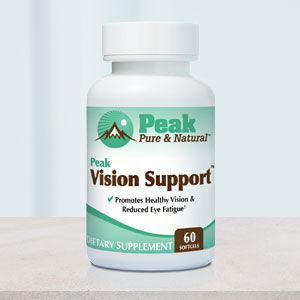Get Easy Health Digest™ in your inbox and don’t miss a thing when you subscribe today. Plus, get the free bonus report, Mother Nature’s Tips, Tricks and Remedies for Cholesterol, Blood Pressure & Blood Sugar as my way of saying welcome to the community!
How to have the memory of a 50-year-old at 80

A few years ago, I wrote about six habits that will help keep your brain young.
Exercise was top of the list. And for me, this was bad news. Let’s just say I’m not a fan of breaking a sweat, even less so as I get older.
Recently, though, I came across some news that makes me feel a lot better about not being as active as I should be.
It seems there’s one thing they left off that 6-habit list — and a long-term study of SuperAgers has shown how crucial that one behavior is if you don’t want to end up with dementia and Alzheimer’s.
Who are SuperAgers?
The term “SuperAger” refers to people aged 80 and beyond who defy the typical signs of aging, exhibiting cognitive and physical health more like someone in their 20s or 30s.
For the past 25 years, researchers at Northwestern University have examined 290 SuperAgers to find out why their minds have stayed so sharp, scoring on par with a 50 or 60-year-old on a delayed word recall test, for example.
They also examined the donated brains of 77 deceased SuperAgers. Some of these brains contained amyloid and tau proteins (also known as plaques and tangles), which are key hallmarks of Alzheimer’s disease, while others showed no buildup at all.
“What we realized is there are two mechanisms that lead someone to become a SuperAger,” says Dr. Sandra Weintraub, professor of psychiatry, behavioral sciences, and neurology at Northwestern University Feinberg School of Medicine.
“One is resistance: they don’t make the plaques and tangles. Two is resilience: they make them, but they don’t do anything to their brains.”
Also, the brains of SuperAgers show no significant thinning of the cortex — the outer layer of the brain. They have a thicker anterior cingulate cortex than younger adults. This region plays a significant role in decision-making, emotion, and motivation.
Finally, SuperAger brains have larger entorhinal neurons than others their age. These neurons are critical for memory.
So what’s the missing link?
Despite having diverse lifestyles and varying approaches to exercise, SuperAgers tend to be highly social and report strong interpersonal relationships.
That’s the one thing that was missing from that list of six things I mentioned earlier.
Now, we’re not all SuperAgers. But that doesn’t mean we can’t keep our wits about us well into old age.
According to this research, the best way to achieve this is to stay connected to others.
Talk to your neighbors. Make regular dates with friends. Take part in local book groups or other community activities.
Doesn’t much matter what it is, as long as you have regular and satisfying interactions with the people around you. It will help you build cognitive reserve — the brain’s ability to withstand or compensate for age-related decline in cognitive function.
Those people who showed resilience against the plaques and tangles in their brain? They’ve got tons of cognitive reserve.
So, how do you develop more cognitive reserve?
- Engage in intellectually stimulating activities, like reading, solving puzzles, playing games or learning new skills.
- Maintain a healthy lifestyle. Stay active within your limitations. Eat the right foods. And get good sleep.
- Use your hands. A Mayo Clinic study found that ordinary activities like knitting or woodworking were associated with as much as a 50 percent decrease in the chances of developing mild cognitive impairment — the first step toward dementia and Alzheimer’s.
- Working has also been shown to boost cognitive reserve, at least in a study on women.
When it comes to staying sharp right into old age, I hope you’re beginning to see that you have much more control than you thought.
Editor’s note: Do you know that poor gums and teeth are linked to the number one killer in America? Not to mention kidney disease… rheumatoid arthritis… Parkinson’s disease… depression… and so much more. Click here to discover America’s Hidden Dental Health Crisis: How to protect yourself and your family from this dangerous public health peril!
Sources:
These 80-year-olds have the memory of 50-year-olds. Scientists finally know why — Science Daily
Brain-building: How to grow your cognitive reserve — Mayo Clinic















